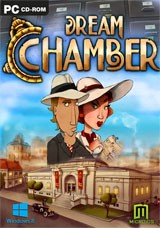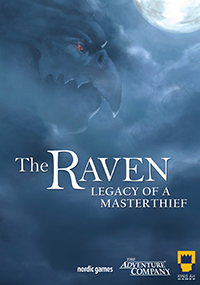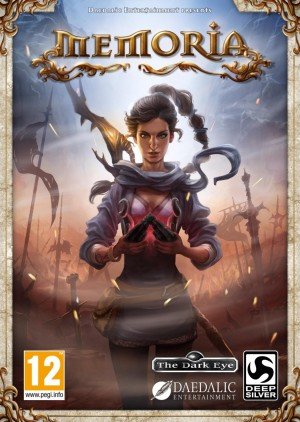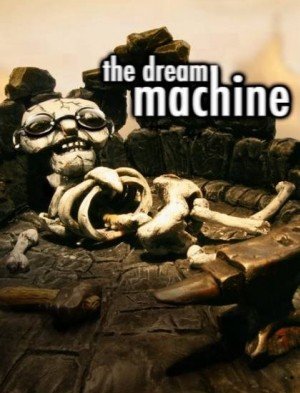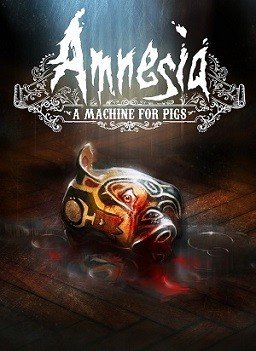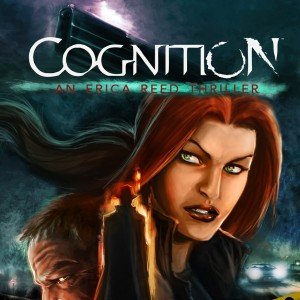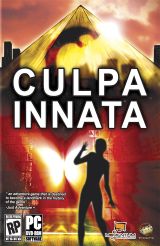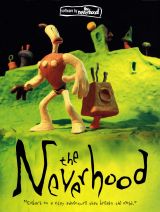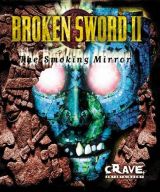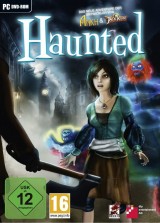Review for Dream Chamber
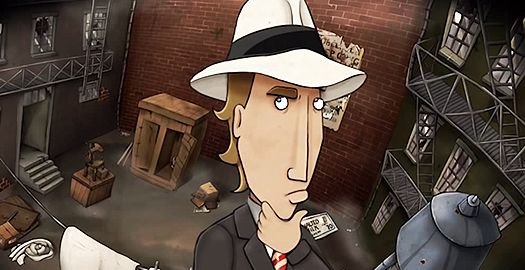
Game information
There’s a certain point at which an unusual game design can go awry and its weirdness reaches critical mass, where it shifts away from incorporating innovative ideas toward awkward and superfluous filler. Where other games balance the scales perfectly (or avoid such potential conflict altogether), some titles just make audiences wrinkle their foreheads in bewilderment, wondering what the creators were thinking. Sadly, some poor design choices solidly place DarkWave Games’ otherwise intriguing hand-drawn Depression-era paranormal mystery Dream Chamber in the latter category.
The basic plot setup sounds great on paper: Charlie Chamber, carefree heir to his family’s fortune, moonlights as an amateur detective, but he bites off more than he can chew by sticking his inexperienced nose into a museum robbery. Tracking down clues and interrogating suspects, Charlie uses his family’s connections to law enforcement and his acquaintances’ knowledge of the criminal underworld to hunt for the stolen goods. But his greatest weapon in pursuit of the valuable antiques is a photographic memory, which allows Charlie to revisit locations in his dreams, uncovering clues his subconscious picked up on while awake.
All this would be an intriguing concept if only it were carried off without a hitch. Initially, I liked the idea of setting the game in 1930. In several locations, the music sets a cool, jazzy tempo reminiscent of some of cinema’s classic noir detective yarns, while the visuals keep the mood light with comically caricatured characters, packing Dream Chamber with flavor and mood. These initial impressions, unfortunately, can’t lessen the painful way the designers have attempted to force a historical sensibility onto the game. The plot is in no way connected to its period; other than its appropriate art design, the game would have been no different were it set 80 years later, in modern times.
To be fair, Dream Chamber does try to incorporate some historical authenticity by having Charlie discuss "current" events during static screens while moving from one area to another. Other games might display help messages during loading screens; here you select a topic to talk about from a list of about seven or eight choices, ranging from politics around the world to sports or the construction of Mount Rushmore. This doesn’t amount to much more than a painfully obvious attempt to provide context for the game’s historical niche, however, and feels forced and shoehorned in. What's worse, the historical importance of America’s Prohibition is relegated to the protagonist’s repeated whining about needing a stiff drink. Suffice it to say, Dream Chamber doesn’t exactly burst at the seams with historic subtext.
I could have looked past the clumsy setting integration, but the dialog also leaves a lot to be desired. I’m not sure if spotty translation is to blame, but often I found myself disengaged from the story and not caring much about characters that felt flat, with no development to speak of. When dealing with Charlie's uncle and girlfriend – people with whom Charlie is obviously supposed to have a close personal relationship – the interaction felt cold and impersonal, almost existing in a vacuum as if no history existed between them. In fact, most characters exhibit the same player-upon-the-stage symptoms, with each having his or her one contribution to deliver before being written out of the rest of the story. Charlie himself has zero character progression throughout the adventure; he ends the game as the same clueless happy-go-lucky bumbling detective he started as.
Exposition seems to be parceled out without any rhyme or reason. In one of the early scenes, I found myself attending a ceremony at the museum on the ill-fated night of the robbery, though I was left in the dark as to why I was there or what my role was. Was I the host? The guest of honor? Even Charlie seemed not to have much idea; I was dropped off and left to walk around and click on people and objects until something happened and the plot moved along. A little later, it's revealed that one of the stolen items is rumored to carry a curse with it. But that didn’t seem to matter much, as Charlie offers nil reaction and it played no part in the story anyway.
Yet nothing sucked the fun out of this adventure quite like the interrogation minigame. I wonder at what point the designers deemed it a great idea to inject frequent breaks into the narrative and force players into a medieval-styled target-shooting minigame, breaking the immersion within the world. During the course of the game, just about every character at some point becomes reluctant to share information. When this happens, Charlie will attempt to “argue” it out of them – and he sure loves arguing! He argues with his uncle, his girlfriend, the manager of a local watering hole, even a hapless security guard. It got to the point where I cringed when I encountered a new character, knowing I’d have to engage in the same verbal sparring once again.
In order to “keep from getting too bored” during arguments, Charlie imagines himself and his opponent as medieval lords on a battlefield. The enemy’s mental resolve is represented by a sturdy castle, which Charlie must lay siege to by firing cannon balls (arguments) to strategically dismantle the keep. To make matters more confusing, different parts of the enemy’s castle wall have differing amounts of hit points, which must be reduced to zero before a section will crumble. Likewise, Charlie’s shots will pack more or less of a punch depending on which dialog options you choose during the argument. However, there is no way to gauge which choices will be more or less effective, so it simply becomes a matter of trial-and-error and counting hit points until you find the right combination of arguments and where to aim. Confused? Trust me, it’s no less baffling in practice.
Dream Chamber includes another distinctive element in addition to its more traditional point-and-click gameplay. Sleeping, whether in his own bed or in a public place, allows Charlie to visit a dream version of any location he’s previously been to. But in his dream state, his subconscious mind points out vital clues not previously noticed or available when awake. For example, early on Charlie finds the museum’s guest list at the police station, but his uncle’s watchful gaze prohibits him from looking over it. Once asleep, Charlie is able to return to the precinct and peruse the report unhindered. This mechanic is actually built into several of the game’s puzzles, as oftentimes an object will not be accessible until Charlie has dreamed about it. While this could have added a welcome layer of intrigue, it rather boils down to the formula: “discover a new location, explore it in the waking world, find a place to sleep, explore it in the dream world, proceed to next location.”
The Dream Chamber also exists within Charlie’s subconscious. Accessible as an extra room in his dream state, the Dream Chamber houses Charlie’s posh alter ego, Charles. Charlie can fill Charles in on new developments in the case when he visits him, and the two will chat back and forth a bit. While this is certainly a quirky idea that could have led in some interesting directions to flesh out Charlie’s history or reveal some surprise character developments, it seems to have been largely ignored by the designers. Rather than taking an active part in the investigation with additional insights, Charles’s advice usually boils down to telling Charlie to drop the investigation for fear that he will get them both hurt or in trouble. In fact, I received helpful information just once, being greeted only with discouraging, generic messages on my subsequent visits. The eponymous Dream Chamber, sadly, ends up being the least useful (and most easily forgotten) location in the game.
This game is not a total wash, however, as it shows more promise in its presentation values. The hand-drawn art style is attractive, with particular attention paid to character portraits during dialog. The wardrobe, the décor, even Charlie’s stylish fedora all felt very authentic to me; it's classic 1930s gumshoe stuff. The smooth jazz soundtrack is also spot-on, filling some locations with a vibe that genuinely fits… at least when there is any music at all. While scenes such as the Proud Peacock nightclub benefitted from a full ensemble jazz band with singer, other environs are utterly devoid of sound, or feature a single monotonous tone, such as the clock tick-tick-ticking into the stony silence of the Professor’s study.
The voice actors certainly get the job done, ranging from passable in most cases to surprisingly pleasant. I particularly enjoyed the deep smoothness of Jacob, the Proud Peacock’s owner with connections to the underworld. Charlie’s voice works as well, portraying a character who comes across as a clueless, pampered rich kid taking on more than he can handle. But even the capable actors cannot inject much humor into a script that delights in awkward punchlines about George Washington’s ego or the difficulty of pronouncing Mahatma Gandhi’s name.
The game isn’t a strikingly lengthy one at 3-5 hours, but I took frequent breaks throughout, as it simply failed to engage my interest enough to want to keep at it. The classic inventory-based puzzles work to its advantage, solvable through common sense and “adventure game logic” (Charlie himself at one point quips about how odd it is that he is able to fit an oversized box in his coat pockets). In fact, I found myself stuck on a puzzle only once in the late stages of the game. Out-of-the-box thinking is kept to a minimum, so a hint system is neither necessary nor provided. A bigger nuisance is having no visible on-screen indicators of hotspots or labels, even when hovering the cursor over items. Knowing which objects can be interacted with becomes a crapshoot clickfest – except in the dream world, where vital clues appear shiny while everything else is a dull, monochrome color. Charlie does keep a journal, which occasionally points toward the next step of the investigation.
Clearly envisioned – but not advertised – as an episodic mystery, Dream Chamber ends with a cliffhanger and leaves all its questions on the table, unanswered. What is the “Service Society” whose members have been following Charlie’s every move with great interest? What importance does the stolen Kairos urn have? And who is the White Widow that showed up uninvited at the crime scene but seems to always slip away just in the nick of time? By game’s end, nothing seems wrapped up at all. Normally I’d expect a major overarching mystery to continue on while minor story points are neatly resolved. But in the case of Dream Chamber, there really are no smaller plotlines to speak of, and given this first installment’s baffling design choices, I find myself not terribly interested in coming back to unravel the rest of the mystery in the future.


